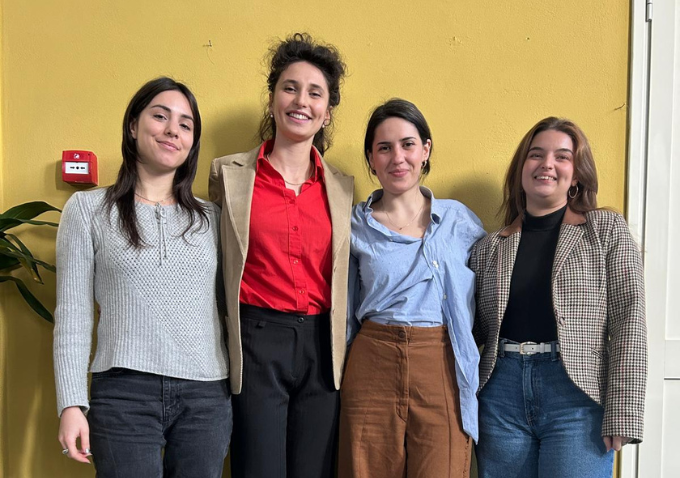In 2019, Elena Ferrero, one of the co-founders and the CEO of Atelier Riforma, and her colleague Sara Secondo, the other co-founder and COO, assigned themselves a mission: to reduce the environmental impact of the fashion industry by tackling the mounting problem of textile waste. But their initially manual upcycling effort ran into a systemic problem: time-consuming sorting, data entry, and a fragmented, inefficient value chain. This is their story.
The aim of Atelier Riforma was to give clothing “a new form” and extend its lifecycle by making it appealing once more to consumers, a mission embedded in the company’s name, “Riforma”. Their early project involved collecting used garments, often surplus from charities, and working with a network of tailors to creatively repair and redesign them.
The team was spending countless hours cataloguing each garment by hand and trying to match them with the right recovery process: put on sale, upcycling or recycling. “It was incredibly hard to make a scalable impact just by working manually with discarded clothing” says Elena. “We knew we needed to go further”.
Meanwhile, organisations collecting post-consumer textiles were struggling to find suitable buyers, and circular fashion businesses could only buy used clothes in bulk, blindly, and offline. This disconnect was stifling the scale-up of circular fashion.
It was incredibly hard to make a scalable impact just by working manually with discarded clothing.
Those challenges led them to explore how technology could support textile circularity, not just through creativity, but through automation, precision, and data. The turning point came in 2021, when Atelier Riforma decided to take a leap: building an AI-powered system to bridge these gaps and that leap became Re4Circular.
A Patented Technological Pivot: Re4Circular
Re4Circular is a patented AI-driven technology that automates the classification and digitisation of used garments. With its embedded cameras, just by screening the garment and/or its label, the system extracts a wealth of data: type, colour, fabric composition, condition, brand, size, gender, seasonality, and more.
The results of this assessment are then fed into an integrated digital B2B marketplace that directly connects textile suppliers with circular fashion professionals, such as second-hand retailers, upcyclers, and recyclers by omitting intermediaries and maximising the value of every garment.
The innovation relies on AI-powered cameras and deep learning to sort clothes in a way that is far more efficient and intelligent than manual processes.
Every time we spoke to investors, they were always questioning if we had a patent.
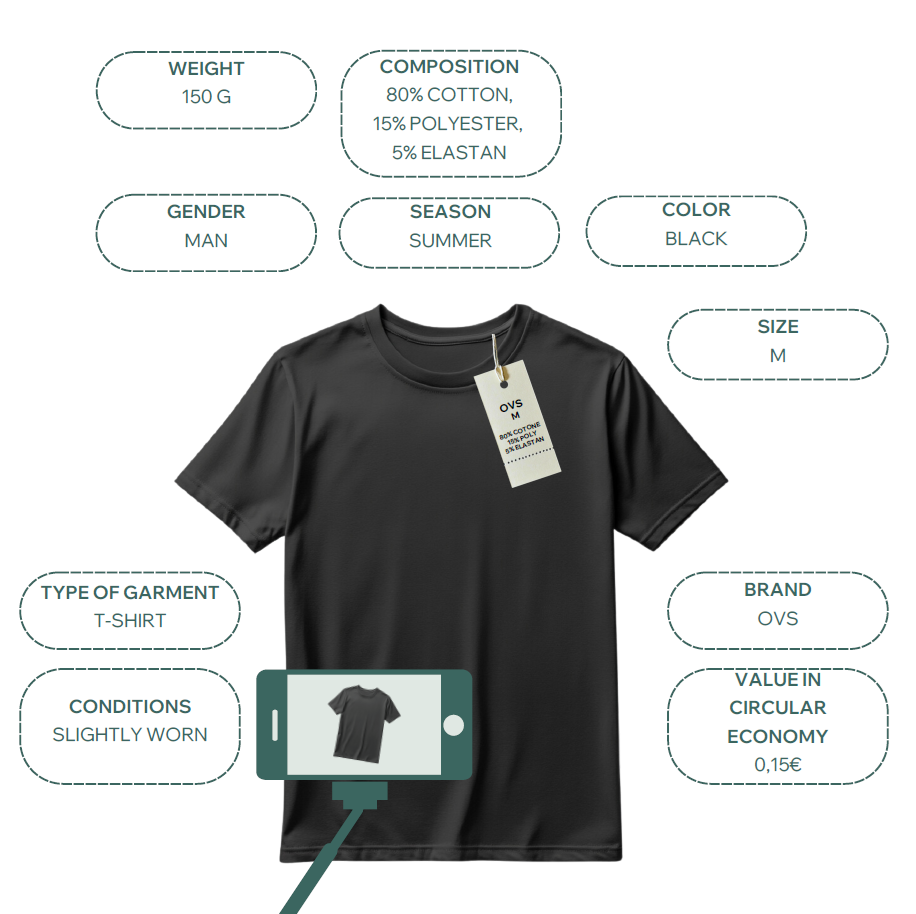
The leap from social project to tech start-up also brought a new layer of complexity: intellectual property (IP) management.
“Like many start-ups, we weren’t primarily focused on patenting during the technology development phase” Elena admits. “But then we understood that if you want to be taken seriously in the tech world, especially when you work with AI, you must pay attention to IP. Because every time we spoke to investors, they were always questioning if we had a patent”.
Patenting as a Strategic Move and a Complete IP Strategy for Success
Navigating the IP world was unfamiliar territory and a real challenge for them, being non-technical founders. “Preparing and obtaining a patent is a long and expensive process, especially when you use AI-powered technologies” she admits. Understanding the nuances of patent claims, deciding what to protect, and aligning legal steps with a fast-moving start-up pace all took time and energy. But they were able to overcome these hurdles thanks to their patent attorneys, who guided them through the process and supportive investors who encouraged to proceed. In the end, the outcome: “owning a piece of proprietary technology that strengthens both their market position and impact” was worth it.
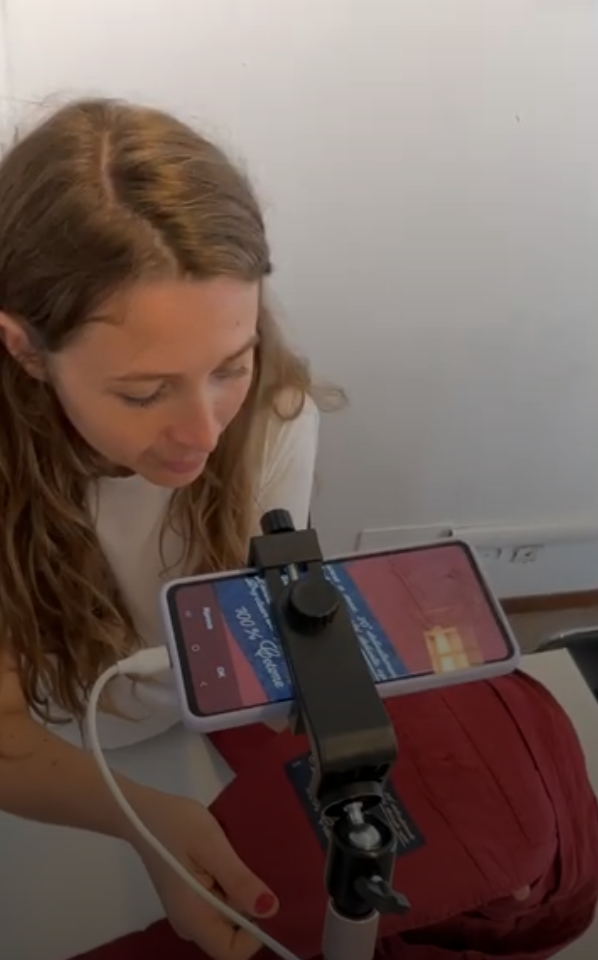
At the beginning, the Re4Circular patent was filed with the sole intention of answering the endless IP-related questions from investors affirmatively. But not long after, they recognised that filing the patent significantly boosted Atelier Riforma’s credibility even before its grant. It made their start-up not only more attractive to funders, but also eased their entry into acceleration programmes and facilitated new partnerships.
Pietro Bonanno, co-founder of 20Fund, investors of Atelier Riforma, underlines this impact: “We have always believed in the potential of Atelier Riforma. By obtaining the patent they have gained the attention of ecosystem members both competitors and non. This patent elevates and distinguishes Atelier’s unique solution to solving fashion waste not only on a European level but also beyond. We are very happy for this achievement.”
This patent elevates and distinguishes Atelier’s unique solution to solving fashion waste not only on a European level but also beyond.
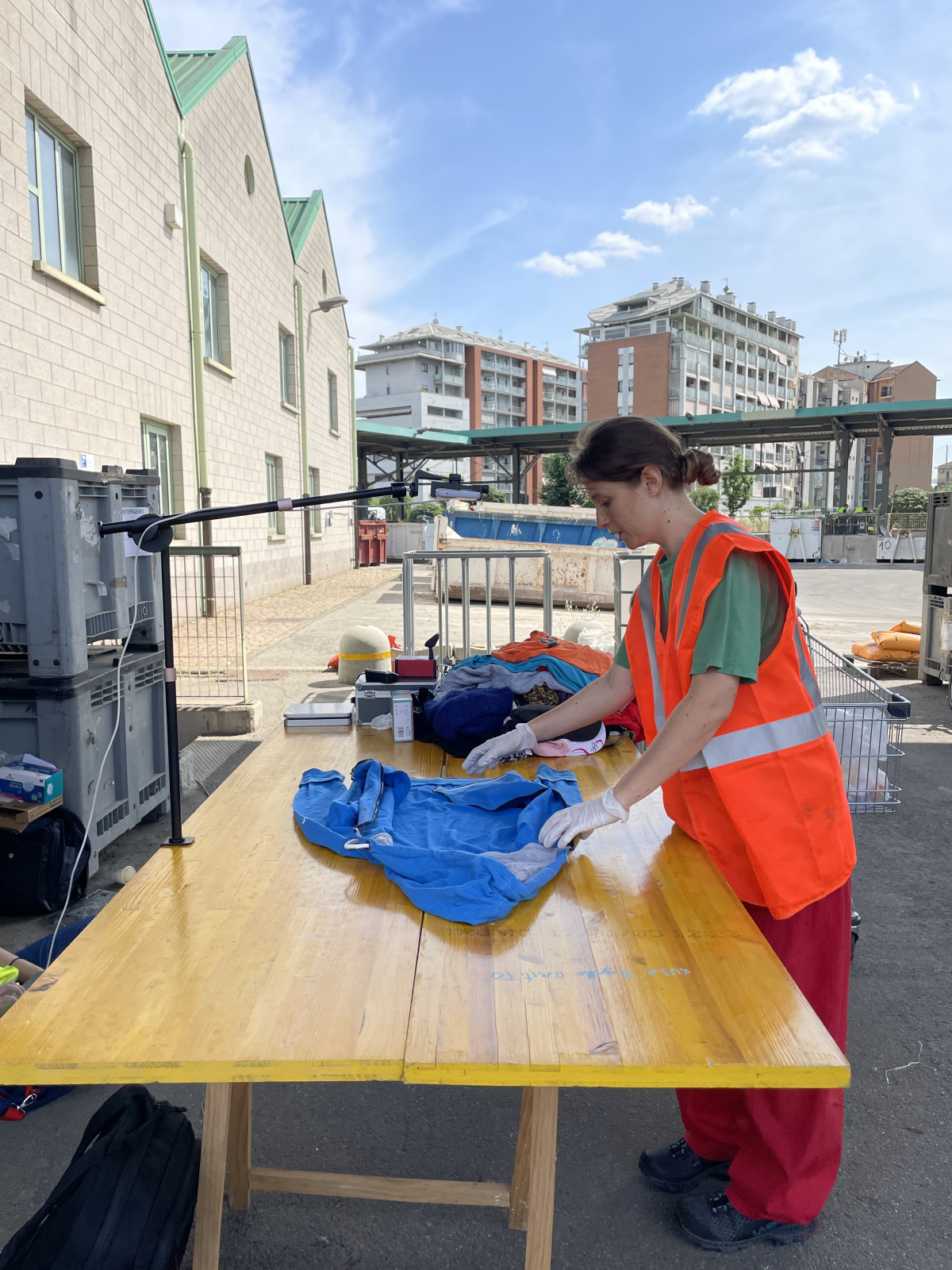
“It was concrete proof that we were serious about innovation, we trusted our technology, and we had valuable assets underpinning our business model” Elena confirms. “In a competitive and fast-evolving space like circular tech, that matters a lot”.
For a business like Atelier Riforma, an IP strategy would not be complete without trademark protection. And one trademark alone was not enough. To secure their full IP rights, both “Re4Circular” and the company name “Atelier Riforma”, along with its logo, have been registered as trademarks, ensuring exclusive rights over these brands to strengthen competitiveness of the company.
Dreaming Big Thanks to IP
Atelier Riforma’s journey from a local upcycling project to a patent-backed fashion tech start-up shows how IP can be a catalyst for impact. Re4Circular isn’t just a product, it’s an enabler of systemic change, unlocking a more efficient, scalable, and sustainable model for circular fashion. And their story offers a compelling lesson: when innovation is coupled with IP strategy, small ventures can dream big.
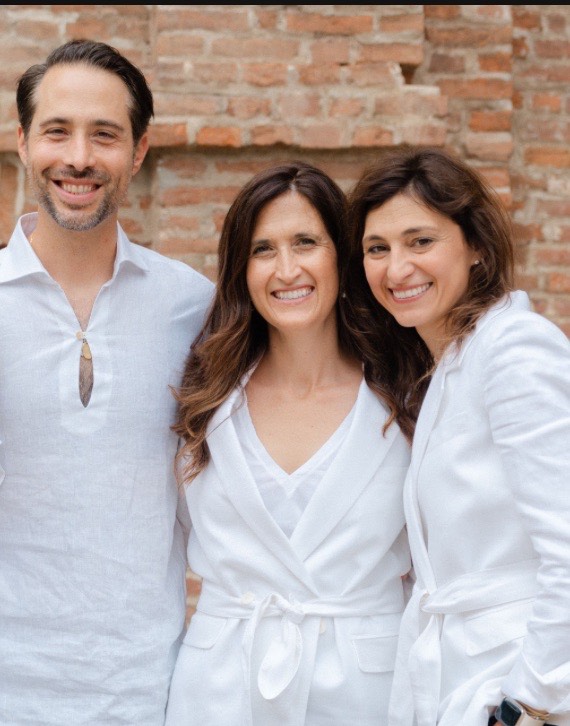
Atelier Riforma now sees IP as part of their growth strategy, not just a technicality, and they are continuing to scale their technology while exploring new models of collaboration across Europe’s circular fashion ecosystem.
“Beyond the business opportunities, it’s rewarding to see your idea formally recognised. I’m proud to read the word ‘inventor’ next to my name” Elena proudly concludes.
Images: Courtesy of Atelier Riforma
This Case Study was created under Creative FLIP, an EU co-funded project aimed at further increasing the long-term resilience of the CCSI in key areas such as Finance, Finance, Learning, Working Conditions, Innovation & Intellectual Property Rights.
Key Takeaways
- Patenting AI-driven technologies can significantly boost a start-up’s credibility, attract investors, and unlock new growth opportunities.
- Expert guidance from IP professionals increases the likelihood of patent success and helps streamline the process.
- A complete IP strategy not only enhances credibility but also attracts partnerships, enables licensing opportunities, and strengthens competitiveness.








